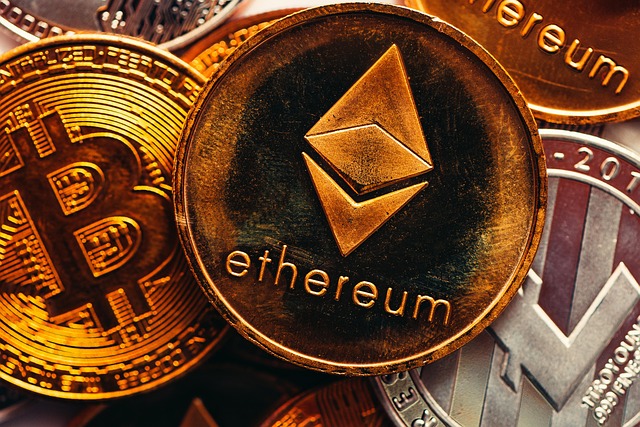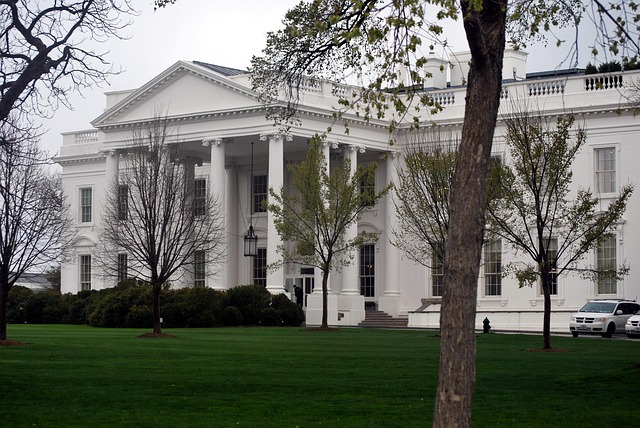Solana vs Ethereum, a tale of two blockchains — Which will be the victor?
When it comes to crypto, value is determined by price, utility and users. Based on these metrics, is Solana or Ethereum winning the battle to be the best blockchain?
Blockchain interoperability will accelerate institutional success
Blockchain technology has been making waves in the financial world, with its decentralized and secure nature promising to revolutionize the way we handle transactions. However, one major hurdle that has been preventing widespread adoption of blockchain is the lack of interoperability between different networks.
Interoperability refers to the ability of different blockchain networks to communicate and share data with each other seamlessly. Currently, most blockchains operate in silos, meaning they cannot interact with each other. This creates a fragmented ecosystem where users are limited to a single blockchain and cannot take advantage of the unique features and benefits offered by other networks.
But why is interoperability so important for the success of blockchain technology? The answer lies in the potential for mass adoption by institutions. While individual users may be content with using a single blockchain, institutions require a more comprehensive solution that can handle a variety of use cases. This is where interoperability comes in, allowing institutions to leverage the strengths of different blockchains and create a more efficient and versatile system.
For example, a financial institution may want to use a blockchain for secure and transparent transactions, but also require the ability to store and transfer data. With interoperability, they can use a blockchain specifically designed for data storage, while still being able to communicate with the transaction-focused blockchain.
Moreover, interoperability also opens up opportunities for collaboration and innovation. By allowing different blockchains to work together, developers can create new and improved solutions that were not possible before. This will not only benefit institutions but also individual users who will have access to a wider range of services and applications.
In conclusion, blockchain interoperability is the key to unlocking the full potential of this revolutionary technology. It will not only drive institutional adoption but also foster collaboration and innovation, ultimately leading to a more efficient and interconnected blockchain ecosystem. As the industry continues to evolve, it is crucial for developers and stakeholders to prioritize interoperability and work towards creating a more connected and seamless blockchain network.
Utah’s Bitcoin reserve bill heads to second Senate reading
Utah is making headlines in the world of cryptocurrency as it becomes one of the first states in the US to pass legislation allowing for investment in Bitcoin. This move comes as no surprise, as the state has been known for its progressive stance on technology and innovation.
The bill, which was passed by a state Senate subcommittee and has already made it through the House, would allow Utah’s state treasurer to invest public funds in Bitcoin and other cryptocurrencies. This is a significant step towards mainstream adoption of digital assets, as it shows that even government entities are recognizing the potential of this emerging market.
The decision to invest in Bitcoin was not made lightly, as the bill went through several rounds of debate and revisions before being approved. Supporters of the bill argue that investing in Bitcoin could provide a hedge against inflation and diversify the state’s investment portfolio. They also point to the success of other states, such as Wyoming and New York, who have already implemented similar legislation.
However, not everyone is on board with this move. Some critics have raised concerns about the volatility of Bitcoin and the potential risks involved in investing public funds in such a new and unpredictable market. They also question whether it is the government’s role to be involved in cryptocurrency investments.
Despite these concerns, the bill has gained widespread support and is seen as a positive step towards embracing the future of finance. It also sends a strong message to the rest of the country that Utah is open to innovation and willing to take bold steps towards economic growth.
This legislation is just the beginning for Utah’s involvement in the world of cryptocurrency. With the passing of this bill, the state is positioning itself as a leader in the digital asset space and is sure to attract more attention and investment in the future. Only time will tell how this decision will impact the state’s economy, but one thing is for sure – Utah is not afraid to take risks and embrace change.
Argentine President Milei arrives in US amid fallout from LIBRA scandal
Javier Milei, the President of Argentina, has arrived in the United States as the LIBRA scandal continues to unfold.
Nigeria files $81.5B lawsuit against Binance exchange: Report
Nigeria’s economy has been experiencing a significant increase in its money supply, with a reported 17% rise in M2 (a measure of the total money supply) in January 2025. This news, reported by Nairametrics, has raised concerns about the country’s currency and its value.
The rise in money supply can have a diluting effect on a currency’s value, as more money in circulation can lead to inflation and decrease in purchasing power. This is a cause for concern for Nigerians, as it could mean higher prices for goods and services, making it more difficult for people to afford their basic needs.
But what exactly is causing this increase in money supply? One factor could be the government’s efforts to stimulate the economy and provide relief during the ongoing pandemic. With businesses struggling and people losing their jobs, the government has been injecting money into the economy to keep it afloat. However, this has also led to an increase in the money supply, which could have long-term consequences.
Another factor could be the rise in digital currencies, such as Bitcoin, in Nigeria. As more people turn to these alternative forms of currency, it could be contributing to the increase in M2. This is a trend that is being seen globally, as digital currencies gain more mainstream acceptance.
The rise in money supply is not a new issue for Nigeria, as the country has been struggling with inflation for years. However, this recent increase has raised concerns about the stability of the currency and the overall health of the economy.
It is important for the government to closely monitor the money supply and take necessary measures to prevent further dilution of the currency’s value. This could include implementing tighter monetary policies and promoting financial literacy among citizens.
In conclusion, the increase in Nigeria’s money supply is a cause for concern and highlights the need for careful management of the economy. As the country continues to navigate through the challenges of the pandemic and the rise of digital currencies, it is crucial to find a balance between stimulating the economy and maintaining the value of the currency.
Regulators to blame for LIBRA memecoin scandal — Coin Bureau founder
The recent rise of memecoins, such as Libra, has caused quite a stir in the crypto community. These digital currencies, often based on popular memes or internet trends, have gained a significant following and have even caught the attention of world leaders. However, the lack of legal clarity surrounding these coins has left many feeling outraged and concerned.
One such example is the recent endorsement of Libra by Argentine President Javier Milei. The coin, which was created as a joke, saw a sudden surge in value after Milei publicly supported it. However, just as quickly as it rose, Libra collapsed, leaving many investors with significant losses. This has sparked outrage among those in the crypto community, who feel that the lack of regulation and legal framework for memecoins has led to this disastrous outcome.
The issue of legal clarity is a major concern for those involved in the world of cryptocurrency. While traditional currencies are heavily regulated and backed by governments, memecoins operate in a largely unregulated space. This lack of oversight can lead to extreme volatility and unpredictable outcomes, as seen with the rise and fall of Libra.
Furthermore, the collapse of Libra has raised questions about the credibility and legitimacy of memecoins. Many argue that these coins are simply a passing trend and have no real value or purpose. Without proper regulation and oversight, it is difficult to determine the true potential and risks associated with these coins.
In conclusion, the lack of legal clarity surrounding memecoins like Libra has caused outrage and concern within the crypto community. The sudden rise and fall of these coins, coupled with the endorsement of world leaders, highlights the need for proper regulation and oversight in the world of cryptocurrency. Until this issue is addressed, the future of memecoins remains uncertain and potentially risky for investors.
Ether reserves on exchanges hit 9-year low as supply shrinks
Diminishing Ether supply on exchanges may signal an incoming price rally driven by a “supply shock,” which occurs when strong buyer demand meets decreasing available ETH.
EU needs a permanent CBDC — Deutsche Börse CEO
Deutsche Börse CEO Stephan Leithner calls for a permanent digital euro, citing its role in financial stability, efficiency and EU autonomy.
Saudi crown prince impersonators launch fake Saudi Arabia memecoin
In a world where cryptocurrency scams are becoming increasingly common, a new one has emerged that has caught the attention of many. Scammers have taken advantage of the popularity of celebrity-backed tokens by launching a fake KSA memecoin, impersonating none other than Saudi Arabia’s crown prince.
The news of this fraudulent coin spread like wildfire, with many investors eager to get their hands on a piece of the action. After all, who wouldn’t want to invest in a coin that claims to have the backing of a powerful and influential figure like the crown prince?
However, it was soon revealed that the account promoting the KSA memecoin was actually hacked, and the real crown prince had nothing to do with it. This unfortunate incident serves as a reminder that scammers will stop at nothing to deceive and exploit innocent investors.
Cryptocurrency has gained immense popularity in recent years, with many people seeing it as a lucrative investment opportunity. However, with this popularity comes the risk of falling victim to scams and frauds. It is crucial for investors to do their due diligence and thoroughly research any coin or project before investing their hard-earned money.
The rise of celebrity-backed tokens has also opened up a new avenue for scammers to exploit. These tokens often claim to have the endorsement of famous personalities, making them seem more legitimate and trustworthy. However, as seen in the case of the fake KSA memecoin, this is not always the case.
It is important for investors to be cautious and not fall for the hype surrounding these celebrity-backed tokens. Instead, they should focus on investing in well-established and reputable projects that have a solid track record.
In conclusion, the launch of the fake KSA memecoin serves as a cautionary tale for investors to be vigilant and do their research before investing in any cryptocurrency. Let us learn from this incident and take necessary precautions to protect ourselves from falling prey to such scams in the future.
What is agentic AI, and how does it work?
Agentic AI goes beyond traditional AI by setting its own goals, making decisions and adapting independently. Learn how it works, its benefits, and how it compares to autonomous and generative AI.










